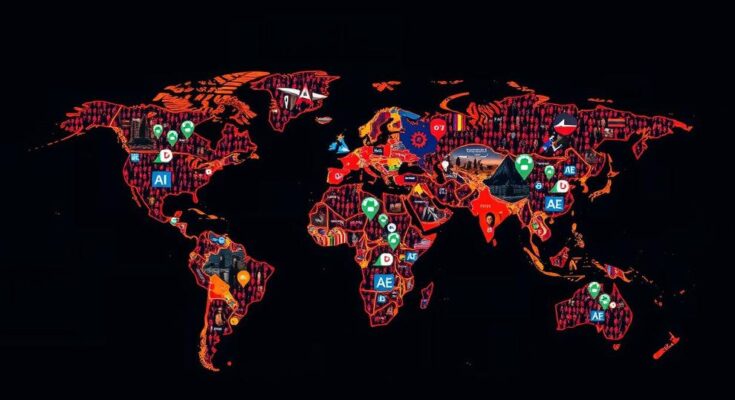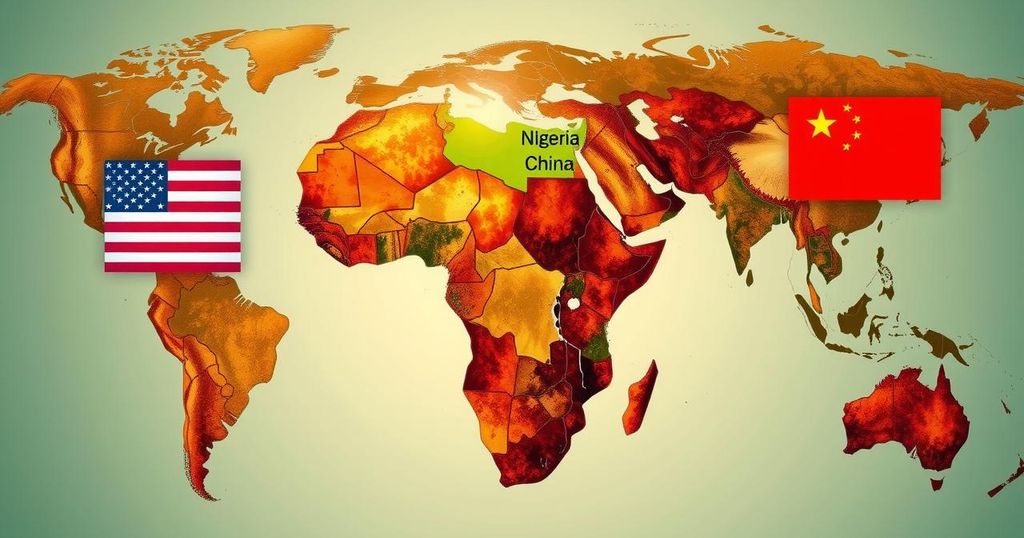The latest international news includes discussions on China’s economic slowdown, U.S. efforts to strengthen ties with Indo-Pacific partners, the UN’s environmental initiatives, and a spotlight on the evolving global drinking habits. Additionally, geopolitical tensions are evident in the U.S.-China dynamics, while domestic challenges, such as regulatory issues faced by Citigroup, add to the complexities of the global economic landscape.
The latest international news highlights critical issues around global economic trends, international diplomacy, and emerging social dynamics. The United States expresses concern over China’s economic slowdown and its implications for global markets, as echoed by Congressman Krishnamoorthi’s statements on the economic ripple effects of China’s industrial overcapacity. The UN predicts a decade (2025-2034) dedicated to addressing increasing sandstorms affecting regions from Africa to China. U.S. Secretary of State Antony Blinken emphasizes strengthening ties among U.S., Europe, and Asia in light of shared strategic interests. In the U.K., new Prime Minister Starmer reaffirmed robust support for Ukraine during the NATO summit, while U.S. regulators imposed significant fines on Citigroup for regulatory lapses, highlighting ongoing scrutiny of financial institutions. The geopolitical realm is further complicated by China’s retaliation against EU trade restrictions and the ongoing humanitarian issues in South Sudan and conflict zones like Gaza. Additionally, current trends suggest a notable shift in global drinking preferences, with spirits overtaking wine as consumers gravitate towards increased quality over quantity. Finally, amid escalating tensions, Taiwan reassured its commitment to self-defense against Chinese threats, reinforcing bilateral relations with the U.S.
The international landscape is marked by a series of interconnected events that illustrate the complexities of global governance, economic interdependence, and social change. The U.S. remains vigilant in addressing China’s economic policies and their global repercussions as worsening conditions could disrupt established markets. The role of international organizations, like the UN, is crucial in tackling environmental crises, such as desertification and natural disasters, underscoring urgent global responses. Simultaneously, financial regulatory challenges signify the need for compliance and accountability in institutions globally, reflecting larger trends in governance. Social shifts, such as changes in lifestyle choices regarding alcohol consumption, also indicate evolving cultural habits and preferences, revealing how globalization influences local markets.
In summary, current international news underscores significant economic challenges, strategic diplomatic engagements, and evolving social dynamics across the globe. Notably, the interplay between international policies and market reactions remains a focal point of concern, particularly with interventions from global powers and organizations. The concerted efforts to foster cooperation among nations amidst looming crises illustrate the need for proactive measures in addressing both humanitarian and environmental challenges. The evolving global narrative reflects the variation in priorities and interests shaped by contemporary tensions and the overarching theme of resilience in facing adversities.
Original Source: www.business-standard.com




